- What John Lennon Thinks of Donald Trump - November 14, 2016
- The Meaning of Fun: The Paul is Dead Rumor - February 3, 2016
- BEATLES-STREEP-SHEA SHOCKER: IT’S NOT HER!!!! - August 13, 2015
In 2008, upon publication of The Idler’s Glossary, one of its authors, Joshua Glenn, engaged in an exchange of open letters with his co-author, Mark Kingwell—the topic of which, befitting the themes of the book, was the proper distinction between idling and slacking. In Glenn’s half of the exchange, our serial contributor illustrates the matter with apt and breezy reference to the Beatles, and even draws a productive contrast with the Rolling Stones (a band whose existence, for whatever reason, has seldom been acknowledged by anyone at Hey Dullblog).
Lest it be felt that this discussion is of limited relevance, consider that the drift of the post-baby boom generations has been toward either outright slacking, or slacking disguised as real work (website design, video-game taxonomizing, media studies, blogging, everything else to do with computers). With that in mind, the question of how the Beatles relate to idling and slacking suddenly becomes remarkably relevant. — D.M.
These reflections first appeared at Open Book Toronto on October 23, 2008.
I’M ONLY SLACKING
At the risk of being accused of Boomer-identification, it occurred to me recently that the Beatles are a good illustration of the idler, while the Rolling Stones are a good illustration of the slacker.
Wait! some might say—the Stones are still together and working, all these years later, so how could they be slackers? Ah, but that’s the thing about slackers—they don’t know when to quit, do they?
The Beatles, as represented to us in their first movie, the 1964 comedy A Hard Day’s Night, are slackers … for the moment. That is to say, they’re four young guys who are too smart and creative and fun-loving to be stuck in their job (professional musicians, en route from Liverpool to London to film a TV show—sounds really fun and cool, but a job is a job), so they play pranks on their boss/manager, they sneak away whenever they can, they refuse to help their company get ahead (by subverting every promotional opportunity). In short, they skive—that is, fail to do their duties in an instructive, glorious, larger-than-life manner. We enjoy watching them skive … but we’re comforted (politically, morally, economically) by the unspoken assumption that these artful dodgers never will quit their jobs.
N.B.: McCartney, the least slackerish of the Beatles in real life, never does sneak away on his own, does he?
Sometimes, though, a slacker is an idler-in-the-making. In Help!(1965), Magical Mystery Tour (1967) and Yellow Submarine (1968), the Beatles are represented to us as colorful butterflies who’ve burst free of their stifling (black-and-white) cocoons: they’re idlers. They’ve broken free of the temptation to slack forever. Now, they no longer seem to be professional musicians; they’re footloose and fancy-free, playing music spontaneously, having witty conversations, flirting, meditating, throwing themselves into play and adventure—all those things that Aristotle considered true leisure activities, because they’re desirable for their own sake. In real life, the Beatles were also evolving from slackers into idlers—and their last movie, Let It Be (1970), shows that they did, indeed, know when to quit.
Except McCartney, of course, who immediately cranked out some solo records and then formed a new band, who toured non-stop. McCartney is neither an idler nor a slacker, I guess: He’s a workhorse, can’t help himself, poor man.
As for the Stones, well, since they didn’t make fiction movies, it’s harder to make the argument. But Jagger/Richards did write one of the great slacker anthems, “Hang Fire”:
In the sweet old country where I come from
Nobody ever works
Yeah nothing gets done
We hang fire, we hang fire
You know marrying money is a full time job
I don’t need the aggravation
I’m a lazy slob
I hang fire, I hang fire
Hang fire, put it on the wire
We’ve got nothing to eat
We got nowhere to work
Nothing to drink
We just lost our shirts
I’m on the dole
We ain’t for hire
Say what the hell
Say what the hell, hang fire
Hang fire, hang fire, put it on the wire
Doo doo doo
Here’s ten thousand dollars go have some fun
Put it all on at a hundred to one
Hang fire, hang fire, put it on the wire
Yes, I know. The narrator of this song is not Mick or Keith. Supposedly it’s a working-class Englishman dispirited by the 1970s economic malaise. But who listens to it that way? We hear Mick joyfully shouting, “I’m a lazy slob!”
What about John Lennon’s “I’m Only Sleeping,” Stones fans who don’t like the sound of this theory demand to know? “I’m Only Sleeping” is a moving, inspiring idler anthem. It’s not about how lazy the narrator is (“Everybody seems to think I’m lazy”), but how screwed-up the Protestant work ethic is (“I don’t mind, I think they’re crazy/running everywhere at such a speed, till they find there’s no need”); it’s an expression of what a creative space the bed and sofa were for Lennon the idler.
Do you think this is a useful illustration, for distinguishing between idlers and slackers? As you know, doing so is the no. 2 reason I started writing an Idler’s Glossary, way back when. No. 1 reason: To back up Robert Louis Stevenson’s bold claim that “Idleness so called, which does not consist in doing nothing, but in doing a great deal not recognized in the dogmatic formularities of the ruling class, has as good a right to state its position as industry itself.”

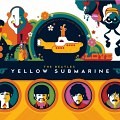

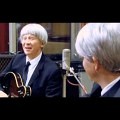

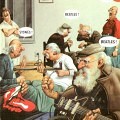
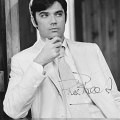
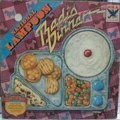
And there’s “I’m So Tired” too. It’s less ideological. He’s just tired really. But can’t sleep. There could be number of reasons for this.
Incidentally, I grew up in Esher in England, and claim The Beatles as a Surrey, not Liverpool, band.
I was chatting with my Mother yesterday. SHe mentioned a rather strange man who owned a small holding farm in Surrey. He delivered his sole produce to a regular set of customers in the area from around 1964 to 1972.
Why is this relevant? He called himself The Eggman. I believe he might be the real Eggman. I don’t know if his round included Weybridge, but the Harrison Esher bungalow would have been within his sales area.
It’s not Humpty-Dumpty. It’s a Surrey Eggman, who sold eggs. Unlike Milkmen, Eggmen were not commonplace. He created the title himself.
Fanciful or fact? Does it matter?
Yes.
/cricket noises
I love that, Greg! I’d always heard that “The Eggman” was Eric Burdon (of The Animals), who loved to crack eggs on girls during sex.
Or perhaps I dreamed that.
Or perhaps I need to tinker with my meds. 🙂
The public presentation of the Beatles vs. what their lives were like offstage always intrigues me — one of the things you don’t see in “A Hard Day’s Night,” for instance, is how hard they worked writing those songs and getting every little thing right in the studio.
I recently re-watched “AHDN,” and surely one of the points of the (obviously tongue-in-cheek, even at the time) unsuccessful attempts to keep the Beatles in the right compartment/room is that breaking free is what the music is about. And breaking free in concrete ways (like running around in the field) feeds it. Your real work — work you don’t have to slack off from — is inseparable from that kind of immersion and joy. (At least the idealist in me hopes so.)
Good point about McCartney never going off alone, too. (Though apparently there was a scene where he was supposed to walk in on an actress rehearsing; allegedly it was cut partly because his acting was too self-conscious in it.) Still, it feels right that he’s the one who doesn’t go off: he’s devoted to the group as group, and is the self-described “keeny.”
Interestingly, there is a similar moment among the deleted scenes from “Help!” The Beatles hide from Klang and gang at the Sam Ahab School of Transcendental Elocation, run by a Svengali played by Frankie Howerd (a popular British comedian of the day). Paul has a sidebar chat with a young blonde played by Wendy Richard, later a star of the ‘orrible Brit sitcom “Are You Being Served.” All this footage was melted down for guitar picks, surely, long ago.
McCartney is a performer, but he ain’t no actor!
Though I do love the moment when he says to the girls on the train “I’d ask you meself, but I’m shy.”
No actor, but a brilliant mimic. Some of my favorite moments in the Anthology are Paul’s vocal impressions of Allan Williams’s high Welsh twitter, an American promoter’s fast talk, and the phony Liverpudlian accents of Yellow Submarine. It’s not an act of genius to connect that with his gift for musical mimicry.
…and the phony Liverpudlian accents of Yellow Submarine.
I’ve always maintained that Yellow Submarine would have been a million times better if, instead of hiring voice actors to read a script, the Beatles themselves had been given a rough outline of the story, and allowed to adlib in a studio (with plenty of rum, coca-cola and hashish) sort of like the yearly Christmas greetings.
Back in the 90s, during Yellow Submarine’s first digital transfer, I saw for the first time the “Hey Bulldog” segment, with John Lennon’s adlibbed shouting. Imagine if the whole movie had been that spontaneous and imaginative, instead of those dreadful fake beatle voices.
– Hologram Sam
Devin: Good point. I think Paul’s gift for mimicry is what’s enabled him to sing in so many different “voices.” I think Ringo talked about this recently — about how John had “the” single immediately identifiable voice and Paul had many different voices and you never knew when he’d pull out a different one. Paul is even using a different voice on some of his songs on his latest standards album.
One other thought: McCartney’s tendency toward mimicry might help explain why his accent nowadays is so unidentifiable. He’s been imitating so many different voices for so long, he’s lost his original accent. In British papers, I see Brits commenting about that all the time, asking “What is that accent he’s got?” Ha.
— Drew
Drew: and also remember that in the Britain Paul grew up in, your accent meant everything. Not for nothing did Mimi supposedly drill the Scouse out of John. Paul’s been mid-Atlantic since 1964, so it’s no surprise his voice is that way, too. John may have been an honorary New Yorker, but to me Paul’s just as American. In his drive for success, his eagerness to please, his flexibility of identity…
HS, I just saw Yellow Sub, and my God, if they’d done what you suggest
1) the movie may not have been releasable, but
2) it would’ve been the greatest thing ever.
Nancy, speaking of the “Hard Days Night” film, recently I saw Buster Keaton’s “The Cameraman” for the first time. (It was the last great film Buster made before the movie studio took away every last shred of his creative control)
There is a scene, unrelated to the plot, where Buster wanders alone onto a ball field and starts having fun, running around, pretending to play ball. His fun is interrupted suddenly by the ominous figure of the groundskeeper, who appears, filmed from behind.
When I saw the sequence, I was startled into a Hard Day’s Night flashback. Richard Lester was a Keaton fan, and I believe this was his subtle homage to the great stone face.
– Hologram Sam
Cracking eggs on girls during sex?!
I suppose everyone has their bizarre turn-ons, but I wonder what a strict Freudian would have to say about that? (And from a guy best known for a song about a whorehouse, no less!)